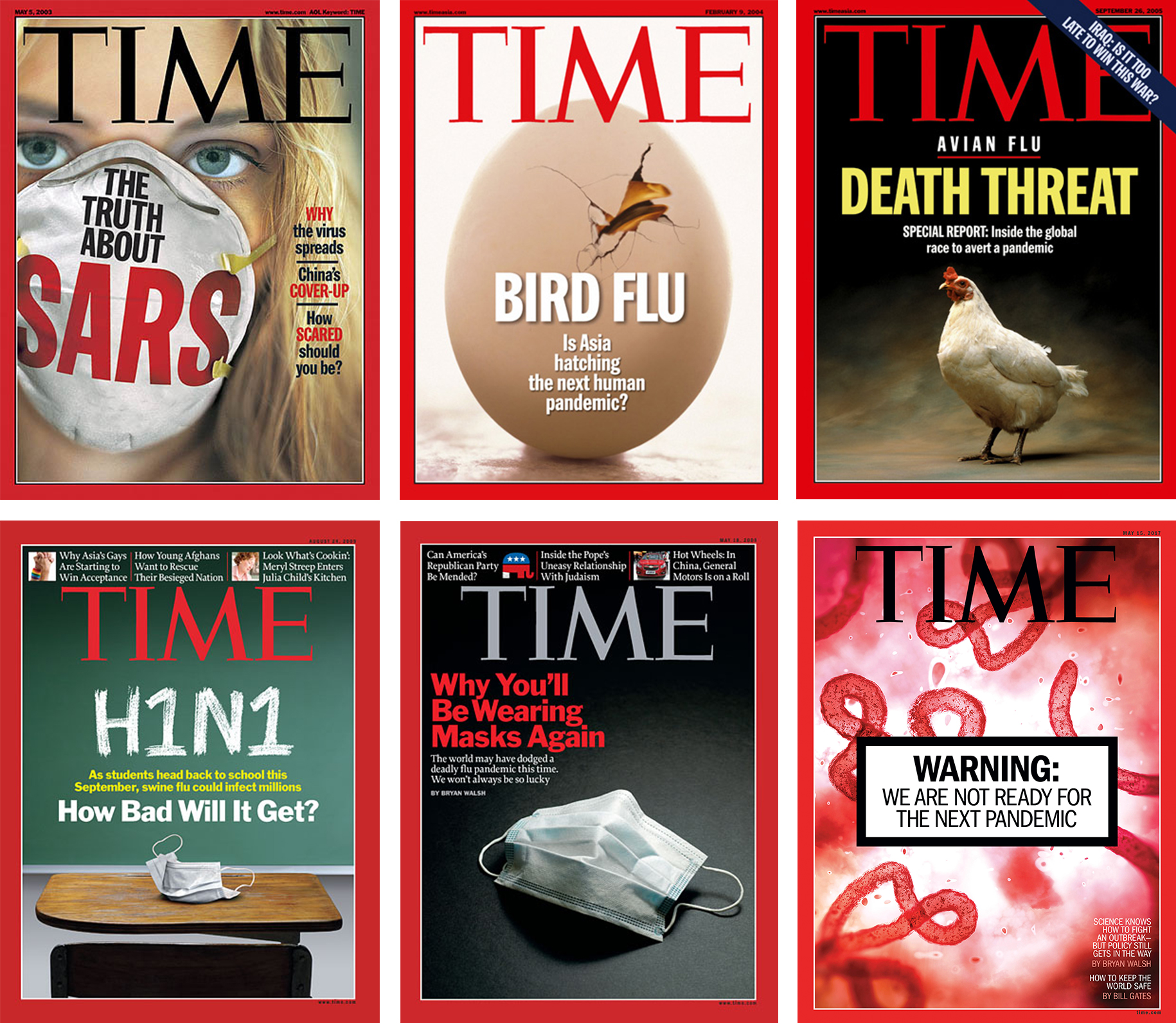
Recently, I zoomed into a Washington-based virtual leadership program that opened on a series of TIME covers from the past two decades. The covers focused on the risk of pandemics from SARS, in 2003, to a 2017 story warning about a virus that “hops a plane out of China and onto foreign soil, where it could spread through the air like wildfire.”
We all knew what was coming. Why, the moderator asked, were we so unprepared?
The turning of the page to this New Year has only underscored the durability of the world’s multiple crises. 2020, the dark joke goes, refuses to concede.
The challenges—a health crisis, a trust crisis, an inequality crisis, a climate crisis, an economic crisis, a democracy crisis—are disparate. And yet one thing unites them: they were entirely foreseeable, from the pandemic to last summer’s apocalyptic wildfires to the Jan. 6 insurrection on Capitol Hill. “It should have required no imagination to foresee an uprising that was planned, promised and promoted in plain sight,” my predecessor Nancy Gibbs, now director of Harvard’s Shorenstein Center, writes in this issue.
Why do we ignore crises that we can clearly see coming, and how do we embrace this moment to change that? As the world resets for a post-COVID future, we have a collective choice. We can mistake this inflection point for just another news cycle. Or we can roll up our sleeves.
That’s why we’re launching an ambitious, decade-long project called TIME 2030. It will be a guide to the post-COVID world, an ongoing exploration of potential solutions and the leaders and innovators driving them. The timing could not be more urgent, starting with the pandemic itself. This week, the U.S. passed the devastating marker of 400,000 deaths from COVID-19, meaning that about 1 in every 825 Americans has died from the virus. More than 2 million people across the world have died from the virus.
TIME 2030 will focus on how we build a healthier, more resilient, more just world. We’ll talk to some of the world’s most innovative thinkers about what comes next, from the future of education and work to the future of truth itself. And we’ll focus on solutions, drawing on the wisdom of a committee of leaders from around the world and across fields. In this issue, you’ll find Bill Gates wrestling with climate change, TIME’s Shanghai-based Charlie Campbell examining the impact of China’s changing diets on the globe and Ciara Nugent of our London bureau reporting on how new economic thinking is inspiring cities like Amsterdam to live differently.
Our advisory committee, which we’ll continue to expand as the project grows, includes chef José Andrés, epidemiologist Larry Brilliant, Ghanaian entrepreneur and educator Fred Swaniker, Ford Foundation president Darren Walker, designer Christian Siriano, actor and humanitarian Angelina Jolie, Duke Energy CEO Lynn Good and the extraordinary 2020 TIME Kid of the Year, 15-year-old Gitanjali Rao. Each of them offers in this issue a proposed solution to a major problem that we must address. Over the course of the TIME 2030 project, our TV and film division TIME Studios will also bring many of these stories to life, helping us imagine how this movie plays out over the next decade.
Why 2030? That is the year by which the U.N.’s sustainable-development goals—targets on equality, poverty, health, growth and sustainability—will be met or missed. Adopted in a rare moment of global consensus by every member state of the U.N., these SDGs have become key benchmarks for commitments by policymakers and business leaders alike. By 2030, we will know whether we’re on the path toward a better planet. This is a shared enterprise, in which we all have a role to play, with opportunities for our readers to participate.
We are all, as we say in the journalism world, on deadline.
More Must-Reads from TIME
- Donald Trump Is TIME's 2024 Person of the Year
- Why We Chose Trump as Person of the Year
- Is Intermittent Fasting Good or Bad for You?
- The 100 Must-Read Books of 2024
- The 20 Best Christmas TV Episodes
- Column: If Optimism Feels Ridiculous Now, Try Hope
- The Future of Climate Action Is Trade Policy
- Merle Bombardieri Is Helping People Make the Baby Decision
Contact us at letters@time.com